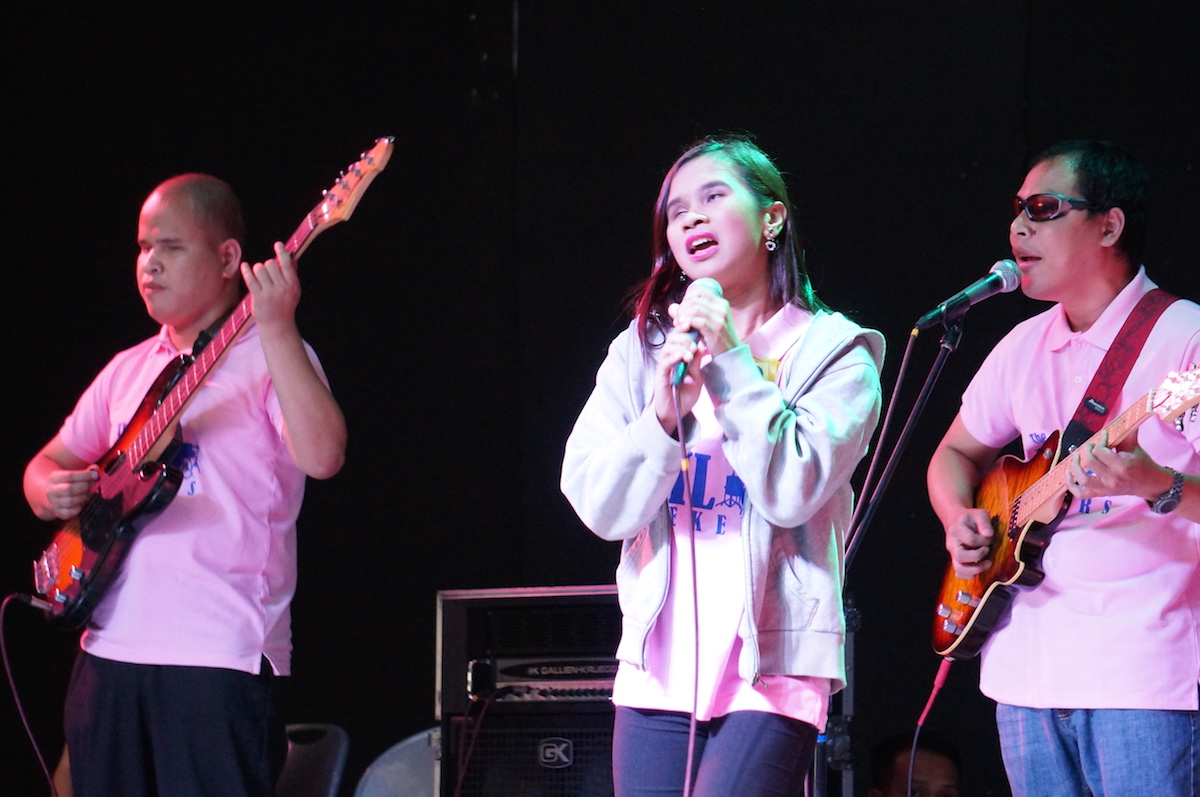[metaslider id=31393]
By VERA Files
EARLY morning Sunday, the Bangcailans, a family of five, rushed to reach the Freedom Park in Davao City to join for the first time this year’s Happy Walk. They did it for Shawnn Noel, their two-year-old son with Down Syndrome.
A yearly event to highlight the National Down Syndrome Consciousness Month celebration, Happy Walk is devoted to promoting positive attitudes like love and hope, instead of disappointment, fear or anger for kids with the disability.
This year’s nationwide celebration organized by the Down Syndrome Association of the Philippines Inc (DSAPI) attracted more than 3,000 participants, a record number, in simultaneous events held in Manila, Cebu, and Davao.
In Manila, 1,500 people – parents, children, school personnel and NGO workers – turned up for the event, surpassing the seating capacity at the venue; in Davao, 1,464 participants; in Cebu, 450 people.
In Davao, the street from the Freedom Park to the People’s Park in Palma Gil street teemed with families in red shirts who joined the parade. The Bangcailans caught up with the group, and since Shawnn Noel could not yet walk, his mother Erma carried him on her shoulders. She didn’t mind. “I’m used to this. It’s a small sacrifice,” she said.
For Erma and her husband Noel, this was their chance to get to know other parents who have children with Down Syndrome, and also for their eldest so Shane, 15, to meet children who have siblings like Shawnn.
As the family watched groups of children with Down Syndrome perform a dance number, Erma could not help but cry. “I cried when I saw them perform. I know it’s still too early to know what will happen to my child when he grows up but no matter what, I accept him for what he is.”
Down syndrome, a condition caused by extra genetic material in a person’s chromosome, affects one in 1,000 to on in 1,100 live births worldwide, according to the World Health Organization (WHO). In the Philippines, one in every 800 children are born with the condition.
As these children grow, they experience cognitive and other development delays and face increased risks of certain medical conditions. They are also exposed to discrimination, violence, and abuse.
DSAPI-Davao Manager Lanie Vergara said people should think “ability” and not “disability” when interacting with children with Down Syndrome.
“The stigma is still there,” she said, adding that some people still refer to them as “mongoloid,” a derogatory term.
“Down Syndrome is not preventable and there’s no cure; but we can do something about it. We can (help them) maximize their potentials,” Vergara explained.
Erma took a while to accept it. “At first it was difficult. I asked God why he allowed my child to become like this, if he could make him ‘normal’ just like other kids,” she said. She has since learned to embrace her son’s condition.
She now fears how others would treat him, that children might bully him in school. Shawnn’s siblings teach other children in their community in Sasa about their youngest brother’s condition.
In Cebu, 19-year-old Allen Marie Alob lives her life like any teenager, and parents like Erma could find comfort in this.
“We treat her like a normal child. We bring her anywhere we go. As a principal in one of the schools in Bantayan, Cebu I used to bring her to school. I allowed her to study in a regular class,” her mother Anabelle said.
When Allen could not catch up in class, she was sent to attend a special education school in Mandaue, Cebu. She has developed talents and skills, and is particularly good at drawing and dancing.
“My daughter is like an independent person. She can manage herself especially when it comes to her food,” she said, adding that Allen has never been a burden to their family.
It is for families like Alob’s and Bangcailans’s that DSAPI continuously supports the annual walk, along with programs and projects to aid children with the genetic condition.
The Ravida family in Manila has been attending Happy Walk for five years. Coming all the way from Alabang – all 18 of them – they wore matching custom-printed shirts, to support their beloved Miguel.
“Right after birth, he was diagnosed with Down syndrome,” said Miguel’s father Randy. His son used to have a hole is his heart, but is doing well, and has been attending school since he was four.But he needs continuous therapy – physical, occupational and speech therapy, Randy said.
For families, attending early intervention seminars and other forums on teaching how to handle their children is crucial. But the first step is acceptance, parents say.
“Every child is a gift from God no matter what he or she looks like. Children with Down Syndrome did not choose their condition. Love your child as he or she is. We just have to show our love and support for them,” Erma, Shawnn Noel’s mother, said. – Reports from John Frances C. Fuentes in Davao, Jake Soriano in Manila, and Mechelle Florita in Cebu.


